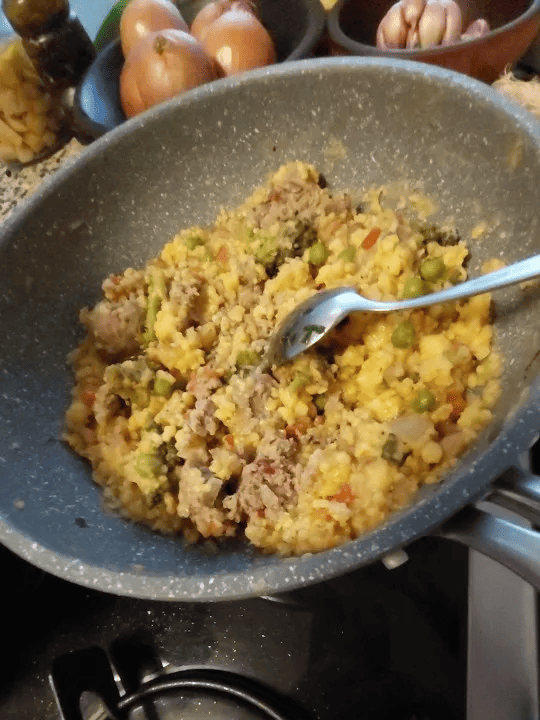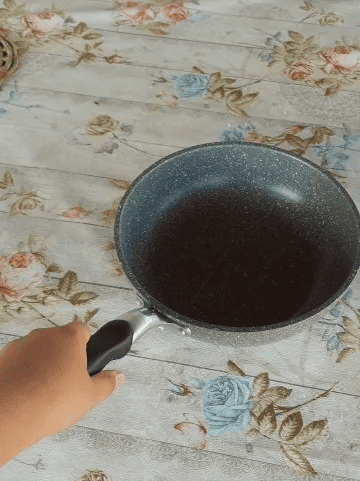
Cleaning your wooden spoons is an important part of maintaining their longevity and preventing contamination in your kitchen. Wooden spoons are a popular kitchen utensil, but they require special care to keep them in good condition. In this article, we will guide you through the steps to properly clean your wooden spoons.
Firstly, it is important to note that wooden spoons should never be cleaned in the dishwasher. The high heat and harsh detergents can cause the wood to warp and crack. Instead, hand wash your wooden spoons with warm water and mild dish soap. Rinse thoroughly and dry immediately to prevent moisture from seeping into the wood and causing damage.
Additionally, it is recommended to oil your wooden spoons periodically to keep them from drying out and cracking. Mineral, walnut, tung, or linseed oil are all good options. Rub the oil onto the spoon and let it sit for a few minutes before wiping off any excess. With these simple steps, you can keep your wooden spoons in great condition for years to come.
Understanding the Material: Wood
Wooden spoons are a popular kitchen tool that has been used for centuries. They are durable, sustainable, and can add a rustic touch to your kitchen. However, wooden spoons require special care to maintain their quality and prolong their lifespan.
Characteristics of a Wooden Spoon
Wooden spoons are made from natural materials, which means they are prone to cracking, warping, and staining. The type of wood used to make the spoon can also affect its durability and resistance to heat. Hardwoods like maple, cherry, and walnut are ideal for making wooden spoons because they are dense and less porous. Softwoods like pine and cedar are not recommended because they are more prone to scratches and dents.
Another characteristic of wooden spoons is their ability to absorb flavors and odors from the food they come in contact with. This means that if you use a wooden spoon to stir a pot of tomato sauce, it will retain the tomato flavor and smell. This can be a desirable trait if you are making a soup or a stew, but it can also be a problem if you are working with strong-smelling ingredients like garlic or onions.
Why Wood Requires Special Care
Unlike metal or plastic utensils, wooden spoons require special care to maintain their quality and prevent damage. Wood is a porous material that can absorb water, which can cause it to warp, crack, or split. Exposure to heat, sunlight, and moisture can also damage the wood and cause it to lose its natural oils.
To prevent damage to your wooden spoon, it is important to hand wash it with warm water and mild soap after each use. Avoid soaking the spoon in water for extended periods of time, as this can cause it to absorb water and warp. Instead, rinse the spoon thoroughly and dry it with a clean towel. You can also treat your wooden spoon with food-grade mineral oil or beeswax to help protect it from moisture and prevent cracking.
In summary, wooden spoons are a popular kitchen tool that requires special care to maintain their quality and prolong their lifespan. Understanding the characteristics of wood and why it requires special care can help you keep your wooden spoon in good condition for years to come.
Gathering Cleaning Supplies
Cleaning your wooden spoons regularly will help extend their lifespan and keep them looking their best. To get started, you’ll need to gather a few essential cleaning items and optional cleaning tools.
Essential Cleaning Items
Here are the essential cleaning items you’ll need to clean your wooden spoons:
| Item | Description |
|---|---|
| Warm, soapy water | Use mild dish soap and warm water to clean your wooden spoons. |
| Non-abrasive sponge | Choose a sponge that won’t scratch or damage the surface of your wooden spoons. |
| Towel | Use a clean, dry towel to pat your wooden spoons dry after washing. |
These items are all you need to keep your wooden spoons clean and well-maintained.
Optional Cleaning Tools
While the above items are essential, there are a few optional cleaning tools that you may find helpful:
- Diluted bleach solution: Use a diluted bleach solution to disinfect your wooden spoons. Mix 1 tablespoon of bleach with 1 gallon of water and soak your spoons for 2 minutes before rinsing and drying.
- Distilled white vinegar: Use distilled white vinegar to remove stains and odors from your wooden spoons. Soak your spoons in a 50/50 mix of vinegar and water for 30 minutes before rinsing and drying.
- Mineral oil: Use mineral oil to condition and protect your wooden spoons. Apply a small amount of oil to a clean cloth and rub it onto the surface of your spoons, wiping away any excess with a dry cloth.
These optional cleaning tools can help you keep your wooden spoons looking and functioning their best.
Step-by-Step Cleaning Process
Cleaning a wooden spoon is a simple process that can help extend its lifespan. Here is a step-by-step guide to cleaning your wooden spoon:
Initial Rinse
After using your wooden spoon, the first step is to rinse it under warm running water. This will help remove any food particles that may be stuck on the surface of the spoon.
Scrubbing the Spoon
Next, you can scrub the spoon using a mild dish soap and a soft-bristled brush or sponge. Be sure to scrub the entire surface of the spoon, including the handle and any crevices or grooves.
If there are any stubborn stains or residue on the spoon, you can create a salt and citrus scrub by pouring a tablespoon of salt onto the spoon and using half of a cut lemon to scrub the salt over the stain to buff it away.
Rinse and Dry
After scrubbing the spoon, rinse it thoroughly under warm running water to remove any soap residue. Then, pat the spoon dry with a clean towel and let it air dry completely before storing it away.
It’s important to note that wooden spoons should never be washed in the dishwasher, as the high heat and harsh detergents can damage the wood. Additionally, you should avoid soaking wooden spoons in water for extended periods of time, as this can cause the wood to warp or crack.
By following these simple steps, you can keep your wooden spoon clean and in good condition for years to come.
Preventing Damage
Wooden spoons are a great addition to any kitchen, but they require a bit more care than their metal or plastic counterparts. By following a few simple guidelines, you can keep your wooden spoons in great condition for years to come.
Avoiding Dishwasher
First and foremost, never put your wooden spoons in the dishwasher. The high heat and harsh detergents can cause the wood to warp, crack, or split. Instead, wash them by hand with warm water and a mild detergent. Use a non-abrasive sponge or cloth to gently scrub away any food residue. Rinse thoroughly and dry immediately.
Proper Storage
Proper storage is also important for preventing damage to your wooden spoons. Avoid leaving them in water for extended periods of time, as this can cause the wood to swell and crack. Instead, dry them thoroughly after washing and store them in a dry, well-ventilated area. A utensil holder or crock is a great option, as it allows air to circulate around the spoons.
If your wooden spoons start to look dry or faded, you can revive them with a bit of oil. Food-grade mineral oil is a popular choice, as it is safe for use with food and won’t go rancid. Simply apply a small amount of oil to a clean cloth and rub it into the spoon, making sure to cover all surfaces. Let the spoon sit for a few hours or overnight to allow the oil to absorb, then wipe away any excess with a clean cloth.
By following these simple tips, you can keep your wooden spoons looking and functioning great for years to come.
Periodic Deep Cleaning
When to Deep Clean
While washing your wooden spoons with soap and water after each use is essential, it’s also important to give them a periodic deep clean to remove any stubborn stains or odors. You should deep clean your wooden spoons once a month or as needed.
Deep Cleaning Process
To deep clean your wooden spoons, you can use a 50/50 mix of water and hydrogen peroxide or distilled white vinegar. Follow these steps:
- Fill a container with the 50/50 mixture.
- Submerge your wooden spoons in the mixture and let them sit for at least 15 minutes.
- Remove the spoons from the mixture and rinse them thoroughly with water.
- Pat the spoons dry with a clean towel.
- Let the spoons air dry completely before storing them.
If your wooden spoons have deep stains or odors, you can also try sanding them lightly with fine sandpaper or using a baking soda paste to scrub them.
Remember to never put your wooden spoons in the dishwasher or soak them in water for extended periods. These practices can cause the wood to warp or crack.
By periodically deep cleaning your wooden spoons, you can extend their lifespan and keep them looking and smelling fresh.
Conclusion
Cleaning wooden spoons is an important task to maintain their longevity and prevent the spread of harmful bacteria. By following the steps outlined in this article, you can ensure that your wooden spoons remain clean and safe to use.
Remember to always hand wash your wooden spoons with warm, soapy water and air dry them immediately after use. Never put them in the dishwasher or soak them for extended periods of time.
If your wooden spoons become stained or dried out, treat them with oil to revive them. Mineral, walnut, tung, or linseed oil are all good options. Be sure to fully absorb the oil before using the spoons again.
For a deep clean, you can soak your wooden spoons in a 50/50 mix of water and hydrogen peroxide or distilled white vinegar once a month. This will help remove any lingering bacteria and keep your spoons looking like new.
By taking care of your wooden spoons, you can enjoy their beauty and functionality for years to come.
Frequently Asked Questions
Should you boil your wooden spoons?
No, boiling wooden spoons can cause them to crack or warp. It is best to clean them with warm soapy water and air dry them thoroughly.
What is the best way to clean wooden utensils?
The best way to clean wooden utensils is to wash them with warm soapy water immediately after use. Avoid using abrasive sponges or harsh chemicals that can damage the wood.
How do you deep wash wooden spoons?
For a deep clean, you can soak your wooden spoons in a 50/50 mix of water and hydrogen peroxide or distilled white vinegar. Be sure to give them at least 15 minutes to sit, before you rinse the spoons thoroughly and leave them to air dry.
How to oil wooden spoons?
To oil wooden spoons, apply a food-safe oil, such as mineral oil or coconut oil, to the spoon with a clean cloth. Let the oil soak in for a few hours or overnight, then wipe off any excess oil with a clean cloth.
How to season wooden spoons?
To season wooden spoons, rub them with a food-safe oil, such as mineral oil or coconut oil, and let it soak in for a few hours or overnight. Repeat this process every few months to keep your wooden spoons in good condition.



